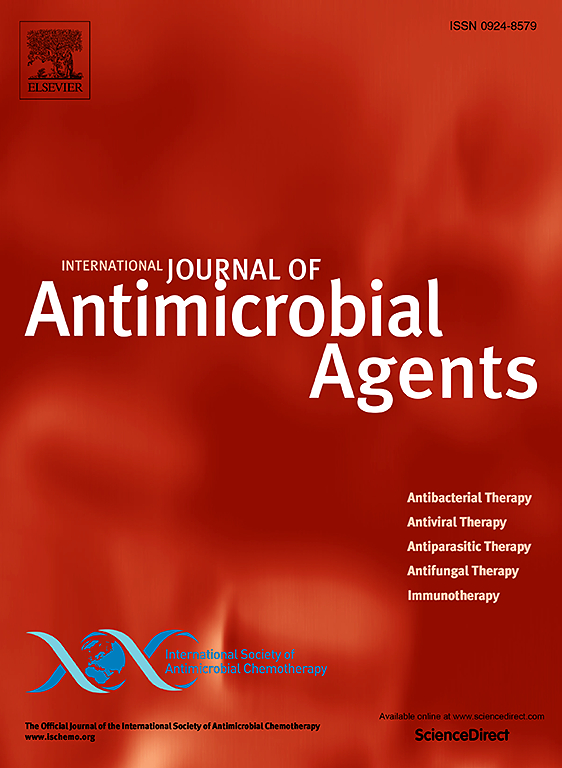宿主免疫和细胞内细菌逃避机制:通过药物传递系统增强宿主定向治疗。
IF 4.9
2区 医学
Q1 INFECTIOUS DISEASES
International Journal of Antimicrobial Agents
Pub Date : 2025-03-17
DOI:10.1016/j.ijantimicag.2025.107492
引用次数: 0
摘要
宿主导向疗法(HDTs)已被研究作为对抗细胞内和耐药细菌的潜在解决方案。HDTs源于对宿主和细胞内细菌之间复杂相互作用的广泛研究,导致依赖免疫调节的治疗方法。为了提高HDTs的生物利用度和安全性,研究人员利用了多种药物输送系统(DDS)来封装和运输治疗剂到靶细胞。在这篇综述中,我们首先介绍了三种杀菌作用和细胞内细菌逃避的机制:自噬、活性氧(ROS)和炎症细胞因子,并特别关注自噬。特别关注清除细胞内细菌的异种自噬的详细机制,这是一个关键的选择性自噬过程,专门针对和降解细胞内病原体。随后,我们提出了应用DDS来调节细胞内细菌消除的这些调节方法。通过整合免疫学和纳米医学的见解,本综述强调了DDS在推进HDTs治疗细胞内细菌感染方面的新作用,并为创新的治疗干预铺平了道路。本文章由计算机程序翻译,如有差异,请以英文原文为准。

Host immunity and intracellular bacteria evasion mechanisms: Enhancing host-directed therapies with drug delivery systems
Host-directed therapies (HDTs) have been investigated as a potential solution to combat intracellular and drug-resistant bacteria. HDTs stem from extensive research on the intricate interactions between the host and intracellular bacteria, leading to a treatment approach that relies on immunoregulation. To improve the bioavailability and safety of HDTs, researchers have utilized diverse drug delivery systems (DDS) to encapsulate and transport therapeutic agents to target cells. In this review, we first introduce the three mechanisms of bactericidal action and intracellular bacterial evasion: autophagy, reactive oxygen species (ROS), and inflammatory cytokines, with a particular focus on autophagy. Special attention is given to the detailed mechanism of xenophagy in clearing intracellular bacteria, a crucial selective autophagy process that specifically targets and degrades intracellular pathogens. Following this, we present the application of DDS to modulate these regulatory methods for intracellular bacteria elimination. By integrating insights from immunology and nanomedicine, this review highlights the emerging role of DDS in advancing HDTs for intracellular bacterial infections and paving the way for innovative therapeutic interventions.
求助全文
通过发布文献求助,成功后即可免费获取论文全文。
去求助
来源期刊
CiteScore
21.60
自引率
0.90%
发文量
176
审稿时长
36 days
期刊介绍:
The International Journal of Antimicrobial Agents is a peer-reviewed publication offering comprehensive and current reference information on the physical, pharmacological, in vitro, and clinical properties of individual antimicrobial agents, covering antiviral, antiparasitic, antibacterial, and antifungal agents. The journal not only communicates new trends and developments through authoritative review articles but also addresses the critical issue of antimicrobial resistance, both in hospital and community settings. Published content includes solicited reviews by leading experts and high-quality original research papers in the specified fields.

 求助内容:
求助内容: 应助结果提醒方式:
应助结果提醒方式:


